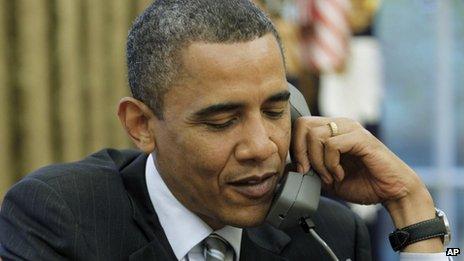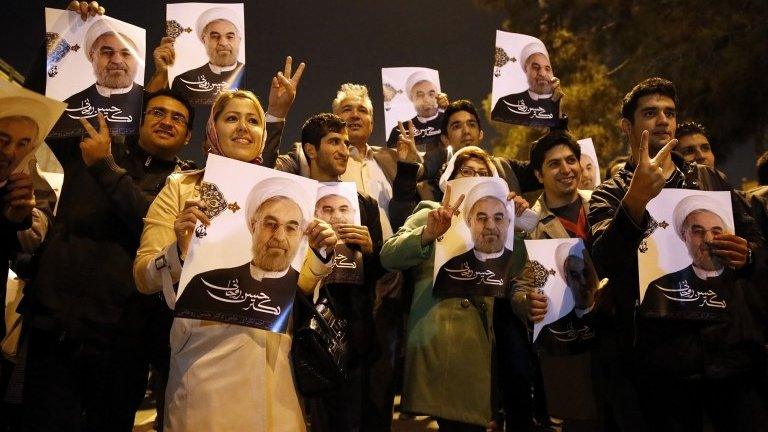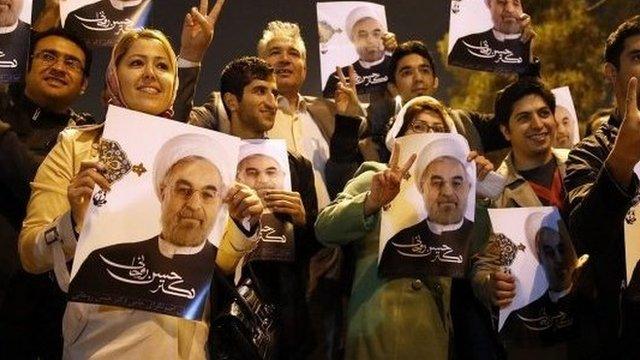Iran nuclear: Obama faces sceptics in Congress
- Published
- comments

The White House read-out of the half-hour call, external President Obama made from Air Force One to Israeli Prime Minister Benjamin Netanyahu is pretty bland. You have to imagine the exasperated silences, the raised voices, the emphasis yourself.
I don't know, of course. Maybe it was perfectly amiable. But there is a cadence to the text that suggests otherwise. "President Obama called... The two leaders reaffirmed... The President noted... The President told..." and "The President underscored that the United States will remain firm in our commitment to Israel, which has good reason to be sceptical about Iran's intentions."
Israel is, according to reports,, external cross that it was kept in the dark about the secret talks between the US and Iran. There is no doubt this deal makes history. It is the first agreement between the US and Iran since the Iranian revolution, external and the hostage crisis of 1979-80. That alone is enough to alarm some at home and abroad.
The deal itself is modest enough. It in effect freezes Iran's nuclear programme, in return for the lifting of a handful of sanctions, making it easier for Iran to sell cars, oil, petrochemicals and gold.
Congress is very sceptical about the deal. Many are suggesting that they should push for fresh sanctions even though the White House has claimed this could shatter the agreement.
Obama will probably get some breathing space, and any new sanctions might not kick in for six months. He could also veto anything Congress passed. But menacing squawks from a hawkish Congress could encourage Iranian hardliners to dig their claws in too.
Some have vociferously protested Iran gets more out of it than the West. This is probably correct, and those who say this is largely a confidence-building measure, external are almost certainly right.
But it is the next step that worries people.
The constant critics who see Obama as weakness personified trot out "Munich" and "deal with Hitler". Some point out that what can be frozen can be thawed - in other words, it is pretty easy for Iran simply to re-start its programme once the sanctions have disappeared.
The Saudis are unhappy that Iran's influence may grow. Perhaps they would rather have that country as a dangerous pariah than see it accepted as a legitimate player in the region.
Others are concerned it is part of a wider trend, external of US disengagement from the Middle East.
If Iran does give up on the weapons programme it says doesn't exist, Israel might find itself under greater polemical, if not actual political, pressure to give up its own undeclared nukes.
This may be a historic deal; it is what sort of history it leads to that is really important.
- Published25 November 2013

- Published25 November 2013

- Published20 January 2014
- Published24 November 2013